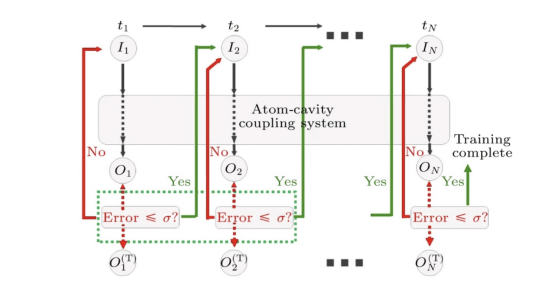The discourse surrounding AI highlights its potential to revolutionize society. As advancements in deep learning and neural networks surge, concerns arise about ethical ramifications, employment disruption, and decision-making power. Countries and organizations must navigate these challenges to harness AI’s benefits while mitigating risks.
♻️ AI Data Center Boom and Renewable Energy Spending
A report by the International Energy Agency reveals an anticipated $580 billion investment in data centers globally, emphasizing the critical role of renewable energy sources. This shift may involve advancements in energy efficiency technologies and impact organizations in various sectors, as companies aim to meet sustainability goals.
Read More:
⚠️ AI’s Role in Data Center Opposition: A Critical View
This opinion piece argues that opposition to data centers overlooks AI’s role in driving demand. AI technologies, including machine learning and data processing, are positioning data centers as essential for infrastructure. The author highlights a potential misalignment in environmental concerns versus technological dependency, emphasizing ethical implications for future developments.
Read More:
🔒 AI Elevates Quantum Communication and Security
Artificial intelligence is revolutionizing quantum communication and sensing. Techniques such as enhanced quantum key distribution and sensitivity improvements enable more secure communications. This advancement could impact global data security protocols, particularly for countries investing in quantum infrastructure, like the US and China.
Read More:
🤖 ‘Grandpabot’ AI Simulation Connects Children with Deceased Grandparents
‘Grandpabot’ leverages AI to simulate conversations with deceased loved ones, helping children cope with grief. This technology employs natural language processing and machine learning to create personalized interactions. Developed by UW researchers, it signifies a novel application of AI in emotional support and memorialization.
Read More:
🎓 AI Integration in Afghan Universities Sparks Debate
In Afghanistan, the increased use of AI in universities has raised concerns among students and instructors regarding its impact on critical thinking and creativity. Discussions focus on AI tools’ role in education, with potential implications for academic freedom and cognitive development in the region.
Read More:
⚡ Future Data Centers Projected to Spike Energy Demand
Utilities predict that upcoming data centers will require two to three times more electricity, impacting energy markets. Discussions involve regulatory requirements for proof of infrastructure before approval. This surge affects states and energy providers, raising concerns about sustainability and resource management amid accelerating digital transformation.
Read More:
📄 OpenAI’s Financial Insights with Microsoft Revealed
Leaked documents disclose OpenAI’s financial terms with Microsoft, detailing their revenue-sharing agreement and inference costs. Such financial insights may influence competitive strategies among tech giants, affecting the AI landscape globally.
Read More:
🌍 U.S. Must Go Open Source to Compete with China’s AI Dominance
Databricks co-founder Andy Konwinski emphasizes the need for the U.S. to adopt open-source AI strategies to maintain its leadership amid growing competition from China. He outlines potential collaborations among tech firms and universities to innovate and advance AI technologies, advocating for public-private partnerships to bolster research efforts.
Read More:
📰 Weekly AI News Highlights from Databricks & Salesforce
This week, significant advancements in AI tools were reported, including updates from Databricks and Salesforce. These updates involve enhanced machine learning capabilities and innovative data handling methods, impacting tech organizations globally, with a focus on optimizing operational efficiencies and improving data analysis.









